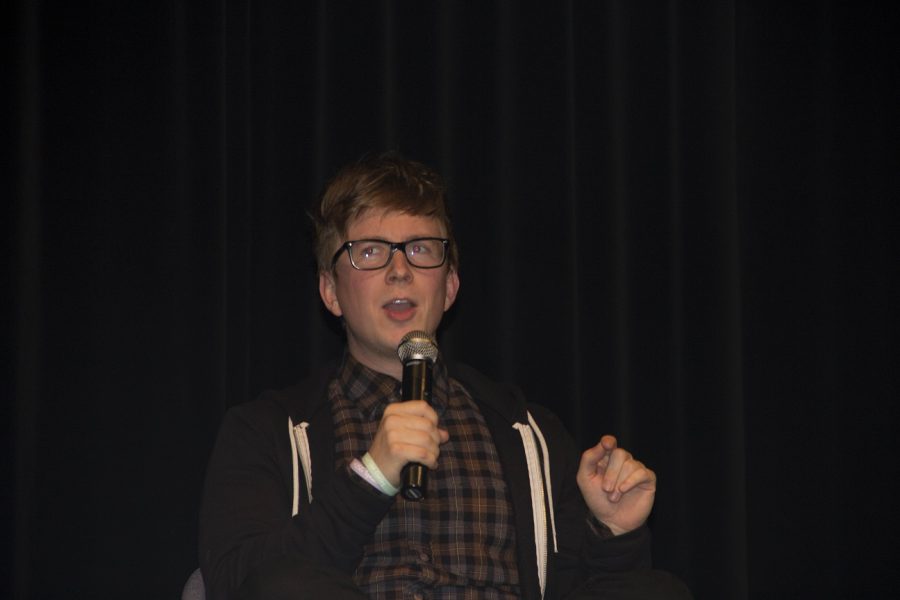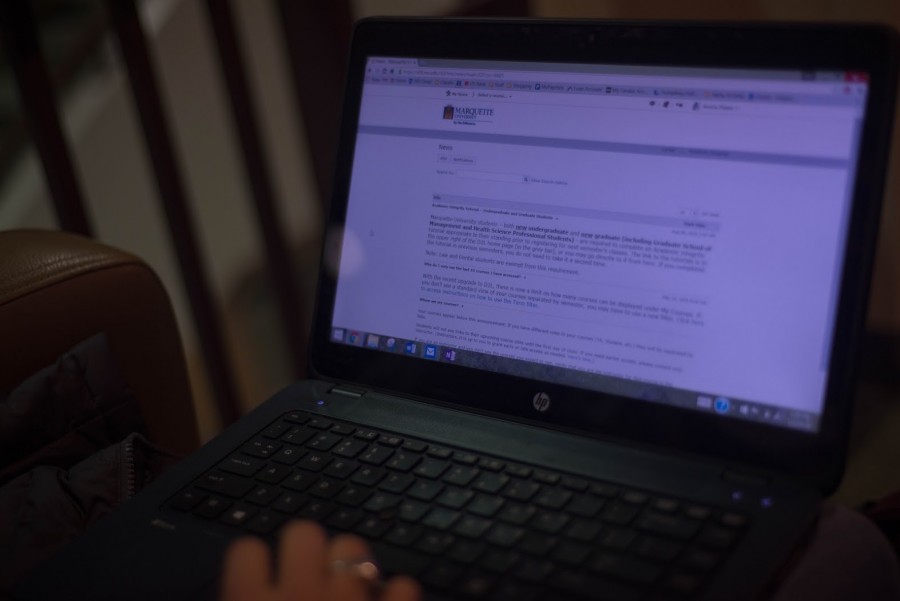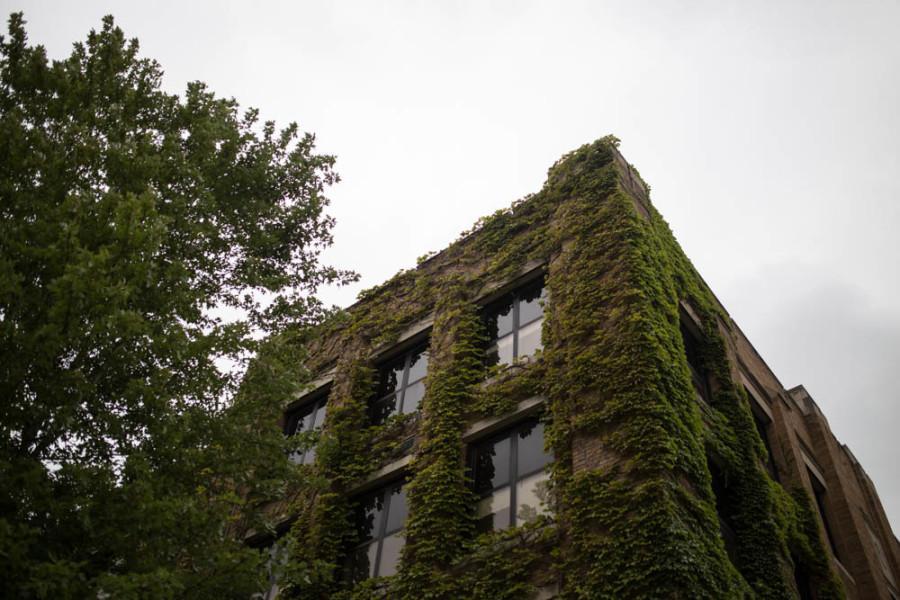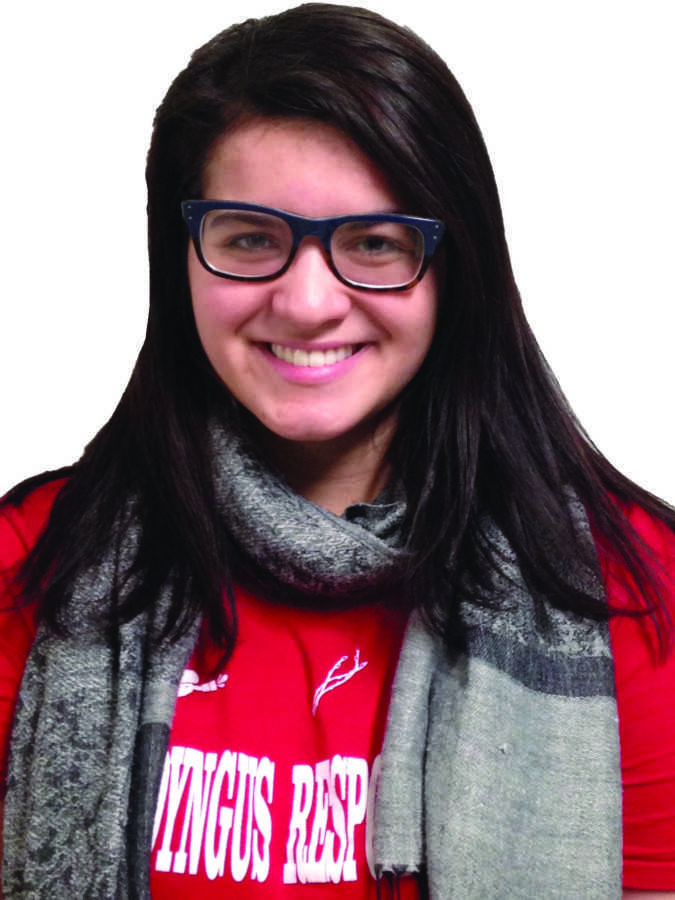
Swiping your Marquette student ID card is becoming second nature for students. Want to get into the library? Swipe your card at the turnstiles. Hungry? Swipe your card for cafeteria access. Heading back home to the dorms? Well, you know the drill.
Swiping the card is so engrained in students’ daily routines that they do it on autopilot, without paying it a second thought. The Marquette ID has become a vital resource to make it through the day.
Just ask any student who has endured the hardships of misplacing their ID, like Pat Monahan, a junior in the College of Business Administration.
“It was awful,” Monahan said. “I couldn’t swipe to get food. I couldn’t use my bus pass because I didn’t have my ID.
“I never realized how much I used it before I lost it.”
Just as students do not notice how often they swipe, what goes almost as unnoticed is the fact that the swipes are recorded.
Every time the barcode on your ID is scanned, that swipe is digitally recorded. For every student, and every swipe.
‘Big Brother’ or no problem?
Rob Mullens, Union Station manager in the Alumni Memorial Union, said the university’s software is primarily used to track purchases and monitor access to university buildings.
“The data is stored securely on (Information Technology Services) servers, and all swipes are kept,” Mullens said. “The current system has been in use for approximately 15 years.”
Mullen said not just students, but all cardholders have their swipe history recorded.
Some may see it as Marquette acting similar to “Big Brother,” the all-seeing, all-knowing government in George Orwell’s dystopian novel “1984.”
“I don’t know how I feel about Marquette recording every single swipe,” Monahan said. “I’d be concerned about who has access to my history and if someone could possibly track my history.”
Others see it as an understandable side effect of swiping your ID card for entering buildings and purchasing food items.
“I don’t think there’s anything sinister in it,” said Tom Gessert, a junior in the College of Health Sciences. “With the technology we use, which makes everything work more efficiently, it’s certainly reasonable they would keep track of swipes.”
Only a few agencies within the university have access to the database, Mullens said. The authorized personnel with access are mainly in MarquetteCard Services, the Department of Public Safety and IT Services.
And if any personnel do access a student’s record, they’ve got another “Big Brother” looking over their shoulder.
“Any access to the system is also tracked by our software,” Mullens said.
Lieutenant Brian Joschko, support services coordinator for DPS, said even though DPS oversees the access control system, it is not often they actively monitor card activity.
“DPS only accesses the data to assist with identifying card access problems or when there is a complaint,” Joschko said.
Mullens said the reason for tracking and storing swipes stems from the Marquette Card’s use in financial transactions.
“The card is also a financial instrument,” Mullens said. “Therefore, it is subject to rules and regulations that require records to be stored for possible later review, if contested. Laws dictate how and the time frame that information is required to be stored.”
D2L tracking
Tracking ID swipes isn’t the only way technology at Marquette is used to keep electronic tabs on student activity.
Desire2Learn, the online resource for classes, features a function that allows professors to check which students access posted documents or other reading materials, among other capabilities.
The program was developed in 1999 and first used by Marquette in the fall of 2004, said Jan Judziewicz, director of applications for IT Services.
Judziewicz said professors can view student login history, discussion posts a student has clicked on and whether a student has clicked on content topics. Instructors can also view when a student was logged in or accessed documents, and for how long.
“Marquette faculty have always had the ability to see student login history as well as other items,” Judziewicz said. “We did not customize the product to provide that functionality. Faculty and representatives from the provost office were part of the process to bring all of the functionality within Desire2Learn live.”
Judziewicz estimated about 76 percent of course instructors logged in to their course site during the fall semester.
Michael Wert, an assistant professor of history, said utilizing D2L is important to running a class efficiently. Checking up on students is only part of it.
“From time to time, I check to see how many students have downloaded a PDF file or a reading,” Wert said. “I do it just to get a feel for which readings students might be really interested in, or not interested in.”
Like Wert, Pamela Nettleton, an assistant professor of journalism, sees using the function as getting a sense of how the class is responding to readings.
“I don’t consistently check up on who is reading,” Nettleton said. “It’s a tool I might use if I became concerned about a particular student, or if I was puzzled about why a class didn’t do well on an assignment or quiz.”
But that doesn’t mean students should simply download a document just to trick the professor into thinking they read. They are not fooling anybody.
“I don’t have to check who read online to know when students skipped the reading,” Nettleton said. “If you don’t read an assignment, you lose, not the professor. The blank faces and dead silence in class are tip-offs.”
Michael Kunkel, a junior in the College of Business Administration, said all is fair when it comes to teachers monitoring student activity.
“If they want to check which students read, it’s well within their right,” Kunkel said. “It’s on the students to read. And if professors use D2L to check which read, it’s just showing they care about the class.”
Checking a student’s activity on D2L can also answer questions a student might have on an assignment.
“If some students say to me, ‘I don’t know how to do the paper, it’s too hard,’ and then I see they haven’t even downloaded the writing guide that’s been on D2L for the entire semester, then I know it’s not the paper so much as it is, perhaps, a lack of initiative on their part,” Wert said.
But D2L isn’t just a site solely used for class. Wert likes to post scholarship opportunities on his course sites.
“I’m curious to see if anyone actually views them,” Wert said. “If even three or four students out of 80 look at one announcement, then I know it’s useful for at least some people.”





